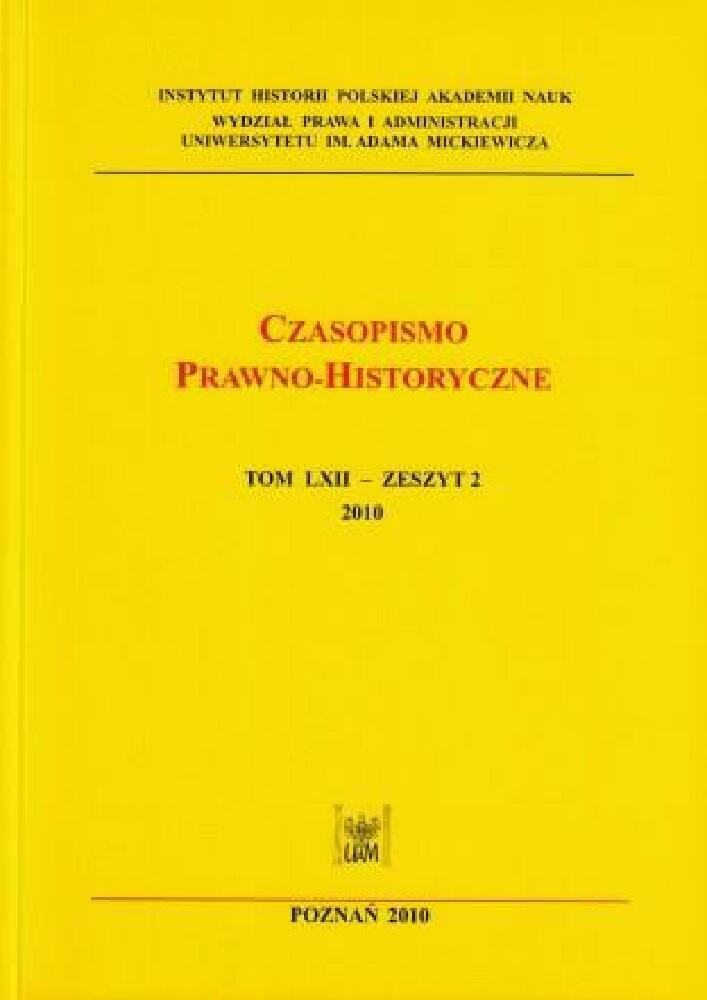Abstrakt
In 1876 the reform of the Russian judicial system of 1864 was implemented, with certain amendments, also in the Kingdom of Poland. As of that date, the Bar in the Kingdom was given a completely new organisational form. Its former 3-tier hierarchical organisation was replaced with a I-tier institution of sworn advocates. The effects of those changes were clearly visible in the altered role of a barrister in a trial. On the positive side, the more stringent requirements before the candidates wishing to be accepted to the Bar ensured an overall better quality of legal service. The negative consequences were, among others, the Russian language becoming the official language of judicial proceedings. Moreover, between 1876 and 1918 the Bar in the Kingdom of Poland was closely controlled by the authorities of the Russian Empire and no form of Polish self-governing body was allowed in it. Despite those restrictions, the Bar remained largely Polish and the profession of the sworn barrister in the Kingdom of Poland was performed mainly by the Polish lawyers. However, the conditions of work remained harsh, which prompted barristers, especially during World War I, to pursue many varied tasks for the community, aimed, in the long run, at creating a platform for the barristers to collaborate on different levels and to eventually develop into a professional group. The barristers associated in the Bar of the Kingdom of Poland authored the main draft of the new law on barristers and their appointments, effective as a temporary solution from 1 January 1919. A new era of the Bar began.
Finansowanie
Digitalizacja sfinansowana przez Ministra Edukacji i Nauki w ramach umowy nr BIBL/SP/0002/2023/1
Licencja
Copyright© 2010 Wydział Prawa i Administracji UAM w PoznaniuOPEN ACCESS




